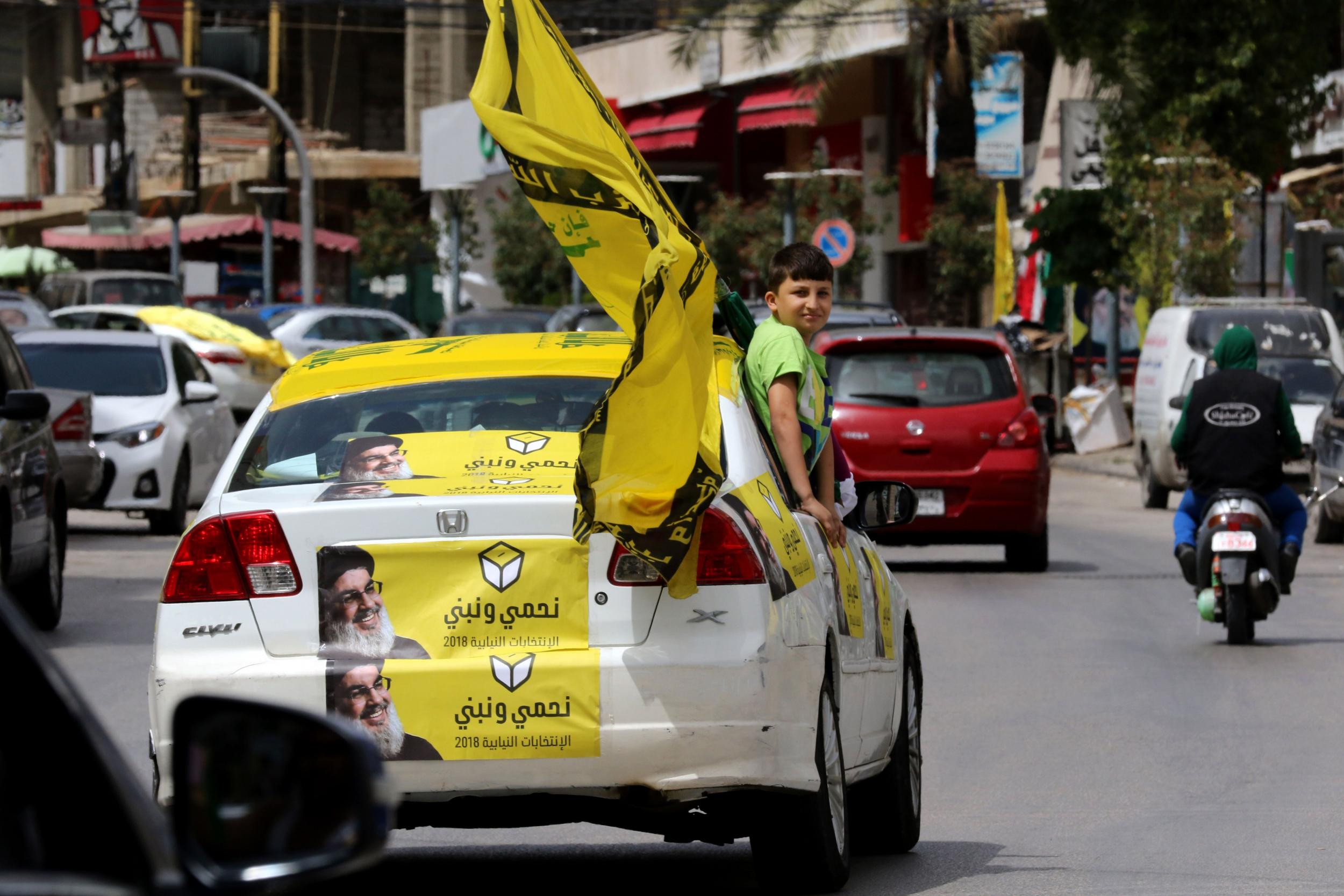Hezbollah delivers ‘slap’ to political opponents in Lebanon’s election
Low turnout at first general election in almost a decade sees gains for Hezbollah and anti-Hezbollah Christian Lebanese Forces at expense of Saad Hariri’s Sunni Future Movement

Your support helps us to tell the story
From reproductive rights to climate change to Big Tech, The Independent is on the ground when the story is developing. Whether it's investigating the financials of Elon Musk's pro-Trump PAC or producing our latest documentary, 'The A Word', which shines a light on the American women fighting for reproductive rights, we know how important it is to parse out the facts from the messaging.
At such a critical moment in US history, we need reporters on the ground. Your donation allows us to keep sending journalists to speak to both sides of the story.
The Independent is trusted by Americans across the entire political spectrum. And unlike many other quality news outlets, we choose not to lock Americans out of our reporting and analysis with paywalls. We believe quality journalism should be available to everyone, paid for by those who can afford it.
Your support makes all the difference.Lebanon’s powerful Hezbollah and its allies appear to have won more than half of Lebanon’s parliamentary seats in the country’s first general election in nearly a decade, unofficial results indicate.
Preliminary results from Sunday’s vote released by the authorities on Monday suggested that the Iranian-supported organisation and allied smaller parties won at least 67 seats in the 128-seat parliament. Another unity government will be formed in which the Shia bloc will hold enough power to veto bills they dislike.
The vociferously anti-Hezbollah, right-wing Christian Lebanese Forces party are expected to be the biggest winners of the election, almost doubling their number of seats from eight to 15.
Turnout across the country, where voters have to return to their place of birth to cast a ballot no matter their current residence in the country, was low, at an estimated 49 per cent.
It is widely believed Sunni voters, angry at perceived concessions made by Future Movement leader and prime minister Saad Hariri to his Christian allies, stayed at home, allowing the Shia and Christian parties to make gains.
Lebanese newspaper Al-Akbhar, which is loyal to Hezbollah, carried a picture of a dour-faced Mr Hariri on Monday’s front page, headlined simply “The Slap”.
Civil war-period figures and pro-Syria politicians made comebacks from the 2005 election, which was dominated by debate over Syria’s influence in the country.
Interior Minister Nouhad Machnouk is expected to announce the official results later on Monday.
Lebanon went to the election booth at the weekend under a set of complicated new rules designed to move the country towards a proportionally representative system for the first time, allowing space for more independent candidates.
In the end, only two new civil society candidates, from the Li Baladi party are thought to have won seats. One – the journalist Joumana Haddad, also one of the only women thought to have won – was thought to have won a seat in Beirut on Sunday night, only for the state to then say in a recount it believed the Free Patriotic Movement’s Antoine Panos had won.
A protest in Beirut’s Martyrs’ Square to demand a third recount for Ms Haddad’s seat has been organised for Monday night.
Lebanese media have been dominated in recent weeks by pundits angry that the country’s biggest issues – the heavily indebted economy, the disarmament of Hezbollah, Syrian refugees and crises in public services such as electricity and garbage – have for the most part been sidelined in campaigning.
The major parties are seen as being too preoccupied with forging allegiances to maintain the status quo to assure voters they will do what is best for the country.
Analysts believe that the election results – which reflect Lebanon’s position in the region and the Middle East’s wider power struggles – will be viewed by other parties such as Iran and the US through the lens of other concurrent events in the region, such as Iraq’s elections on 13 May.
Join our commenting forum
Join thought-provoking conversations, follow other Independent readers and see their replies
Comments